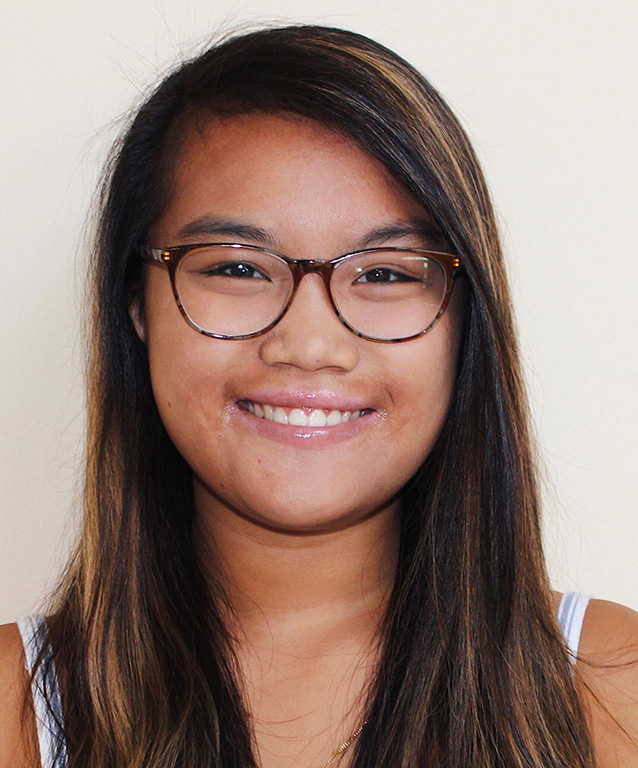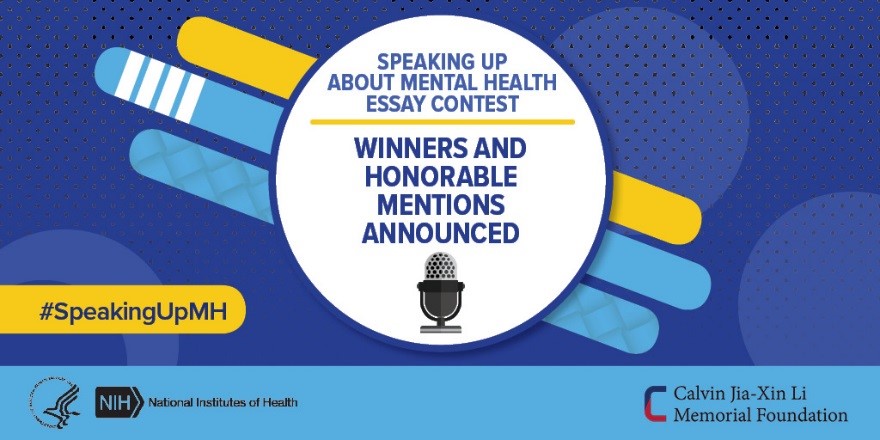Speaking Up About Mental Health!
This Is My Story
NATIONAL ESSAY CHALLENGE WINNERS

Mental illness is often brought up in school, but never fully discussed. This lack of discussion can create effects that are tragic, and yet it's completely preventable. How will we start the discussion?

It should not take a tragedy to prompt community discussions about mental illnesses. By integrating lessons about mental health into curriculums and increasing accessibility to mental health resources, schools can promote a deeper understanding and awareness about this highly stigmatized condition.

Follow my journey and learn how we can fight the national crisis of childhood trauma. Learn how our schools can help those of us who are “bent, not broken.”

How can mental health treatment be improved in the Black community? In my essay, I describe the relationship between mental health services and underprivileged areas, discuss barriers preventing individuals from receiving treatment, and detail methods to better target treatment through community outreach and government action.

Vitalis
Jasmine
Colorado
I share a piece of my story — my struggles, my frustrations, my mental health — in hopes of illuminating that mental health affects all, regardless of race, age, location, gender, ethnicity, socioeconomic status, political views, and religious beliefs. I share some of my ideas in hopes of breaking the stigma, opening up conversation, inspiring initiatives to promote mental health awareness and acceptance, and ultimately, motivating at least one more person to unite in this fight.

My essay, "Now I Understand" is about realizing what my mental health diagnosis meant and how many people in the world have the same struggles as I do. My essay led to the development of a mental health awareness survey and self-inventory checklist to be used within the juvenile justice centers in North Carolina to highlight the connection between mental health issues and juvenile offender activity.

High schools have an alarming lack of mental health resources despite the fact that 20% of students will have a severe mental illness while in high school. A student tackled this issue by educating peers and teachers in her area about the dangers of mental health.

When it comes to mental health, students suffer in silence for a multitude of reasons, whether it be the stigma or the lack of knowledge of this complex and vague topic at an appropriate age. To combat this issue, Rising Up was uniquely created to foster important conversations about mental health between middle school students as they navigate the difficulties and challenges that come with growing up.

Moved by issues of mental illness that have impacted my Korean-American community and public high school, I sought to take action. Though my experiences and the lessons learned along the way, I share what's worked for me to help others spread mental health awareness in their own communities.

Challenges to youth mental health care include cost, stigma, and the lack of early intervention services. Creating a national network of free, youth-led mental health centers based in local communities would address these barriers to encourage help-seeking behaviors among young people.
Honorable Mentions

Eight-year-old Morgan Guess was diagnosed as clinically depressed after a bullying experience at school. Instead of blaming others or ignoring what happened to her, she chose to tell her story and pushed through her own fears to find a way to help other kids get the mental health services they need.

In our current mental health system, youth often experience a lack of accessibility to mental health care, with stigma and confusion that make the process of getting help more difficult than it should be. Implementing peer programs in schools would reach youth widely, increase mental health literacy, reduce stigma, provide peer support, and encourage youth to seek help.






























